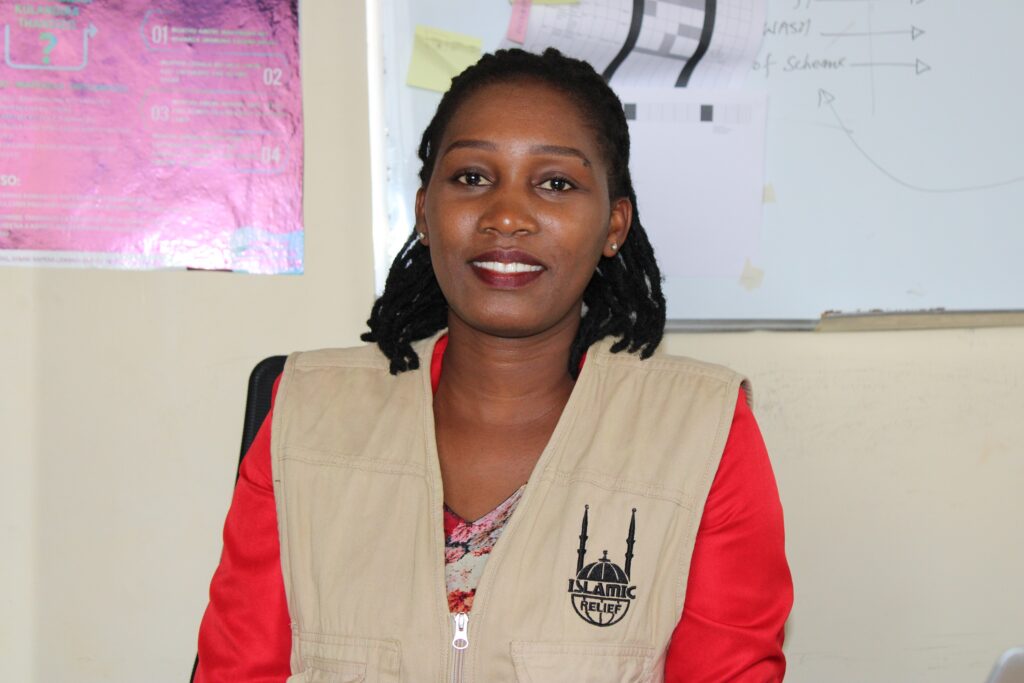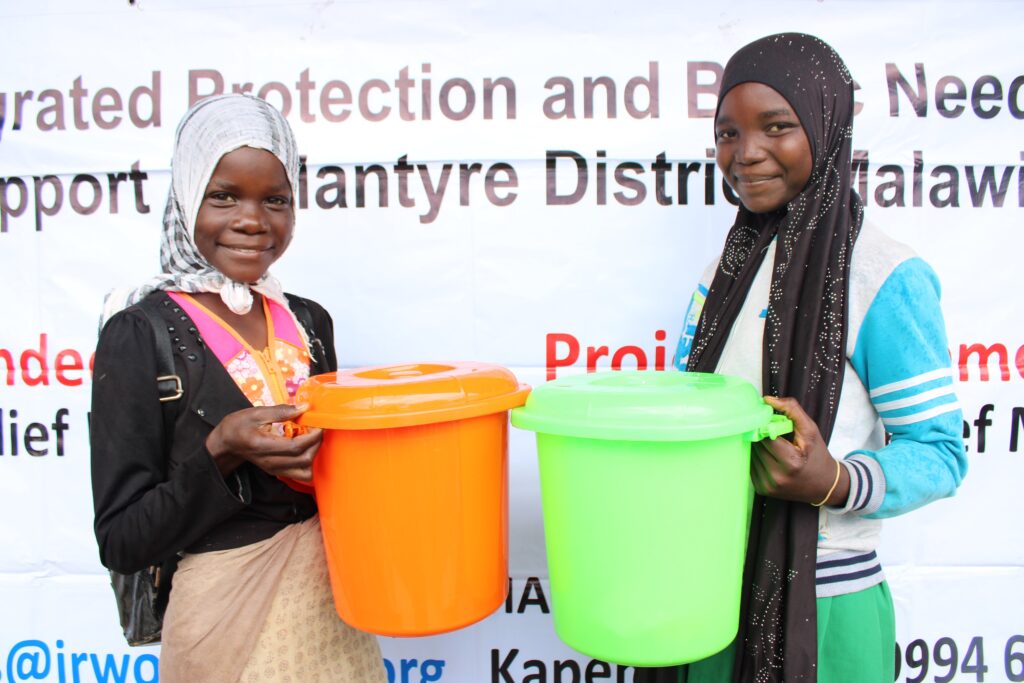
In her second blog for Islamic Relief, Elizabeth Mandala, communications and reporting officer at Islamic Relief Malawi, talks about the challenges period poverty creates for schoolgirls in Malawi and shares some of the work we’re doing to support them.
On 3 occasions now I have accompanied my colleagues to distribute menstrual hygiene kits to adolescent girls in primary schools under Islamic Relief Malawi’s Integrated Protection and Basic Needs Support project.
I get so excited by the opportunity to help the girls and I can never wait to see their reaction. I have been in the same situation and experienced the struggle to care for myself during my period. It becomes even more of a challenge when you don’t have proper kits to use.
Disposable sanitary pads are seen as a luxury in Malawi and only a few girls and women can afford to raise 1600 Kwacha (95p) to buy pads every month. More than two thirds of our population live in extreme poverty, with 70% of the people living on less than £1.50 a day.
The effects of period poverty in schools
I know that some people find the topic of periods uncomfortable to talk about. But it is one factor that contributes to underperformance and school dropouts among adolescent girls, especially in primary schools.
The stigma and discrimination around the topic make matters worse. It’s important that both boys and girls are well informed about menstrual hygiene management, and that the burden on girls in school is eased.
As the latest distribution got under way, I had a chat with 15-year-old Shamim, a pupil at one of the primary schools.
“I started having my periods when I was 13 years old. I have come to know that we use shreds of old fabric as pads. It is a challenge, many times I have stained my school uniform. On one occasion, my classmates saw what had happened and I was so embarrassed. I didn’t show up at school the following day.

“It gives me anxiety. I never look forward to it the following month. It is a burden. I once tried to use a bigger piece of cloth, but I couldn’t walk properly. My family is very poor and because of this my parents cannot afford to buy me the reusable pads,” Shamim told me.
Worse still, in many schools there are no changing rooms, creating an awkward situation considering how often girls may need to change during their period. So, you can imagine the discomfort of spending about 7 hours at school without a changing room.
I learned that girls who live nearby are allowed to rush home and change, but Shamim said this is time consuming. Some end up staying home and not returning for the remaining classes, while others totally avoid classes until they finish their period that month.
This can add up to weeks of missed classes over time, and some girls will completely drop out of school when they fail to catch up with what they’ve missed.
Easing the burden
On our visits, Islamic Relief provides each girl with a hygiene kit containing a bucket, washing soap, body lotion, underwear and reusable sanitary pads.
We supply these kits to help girls attend classes during their period without worrying about staining themselves or their clothes.
Since the project began in October 2021, 2,500 girls have received the kits.
The project is also constructing girls’ changing rooms to provide a safe and private space to care for themselves during their periods.
A teacher has also suggested we supply sewing machines and necessary materials so that groups of mothers that manage community welfare, can produce reusable sanitary pads and distribute them to schoolgirls.
This is a fantastic idea, but one that can’t be covered by the existing project. It needs support from well-wishers as the women will need sewing training, and money is required to purchase sewing machines and other materials.
Each and every day the schools we work with are registering adolescent girls who need hygiene kits.
Stigma around periods is a fact of life in many countries, but it should not become a barrier to girls receiving education and staying healthy.
The world can be a better place for young girls in rural areas if we could all work together and provide the necessary support.
Supplying hygiene kits is just one way Islamic Relief supports children to continue their education and fulfil their potential. Please help us with this vital work. Donate now.
Elizabeth is one of our regular bloggers. Each month, she’ll share stories of her work with Islamic Relief.










